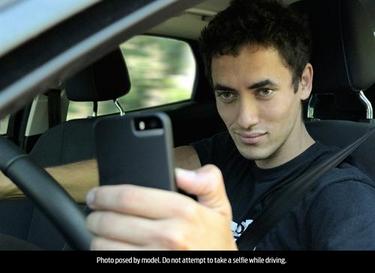Your Rights - and the Risks - of Texting While Driving
 |
DES MOINES, IA -- Oct. 30, 2014: Over 90 percent of adult Americans have a cell phone1 and on average, replace it every 18 months.2 As quickly as technology changes, regulations regarding cell phone use while driving have changed equally fast. While laws vary by state, how can you legally use your phone while driving – and what risks are you taking?
"States generally start by prohibiting the use of cell phones without hands-free devices, then move to prohibiting texting and driving," says Matthew Eason, an attorney in Sacramento, California and a member of the Attorney Network with ARAGŪ, a leader in legal insurance. "In an attempt to keep up with technology, some states are expanding the laws to prohibit use of any electronic hand-held device."
An unintended consequence of the hands-free laws is a distinct rise in driving while texting. "When you could use your phone in your hand, you may have only had one hand on the wheel, but your eyes were usually on the road," says Eason. "Now people are putting their phones on their laps and trying to text and drive from that position to avoid getting caught. The result is that they're not looking at the road."
What risks are you taking?
While laws among the states are relatively uniform, what changes is the penalty. In most states, texting and driving is an infraction which results in a fine and possible points on your driving record. If you are texting and cause great bodily injury or death in an accident, however, you may be charged with vehicular manslaughter which can carry not only jail time, but prison time.
What rights do you have?
An often-asked question regards rights you have if you do get in an accident. Can a police officer legally look at your cell phone to determine if you were using it at the time of the accident?"
"That's a question that will be litigated extensively," says Eason. "There are some court decisions that provide you with a right to privacy of your cell phone. However, the police will certainly be looking for ways to get at your phone and to waive your rights. I would certainly refuse and require a court order before turning it over."
"Of course, the motivation to not text and drive really shouldn't be about not getting caught, it should be about safety," says Eason. "Every time you do it, you are putting your, your passengers' and strangers' lives in danger. It only takes a second of distraction to change many people's lives. Don't ruin it with a simple message that could wait."
Download a Free Infographic
For practical advice on how to prevent distracted driving, download this free infographic on driver safety. Written with Matthew Eason and developed by ARAG, it reminds drivers of the simple, yet often disregarded, tips on how to keep you and your passengers safe on the road.
1 Mobile Technology Fact Sheet. Pew Research Internet Project. Pew Internet.org. 2014.
2 The Life Cycle of a Cell Phone, Environmental Protection Agency. EPA.gov.


